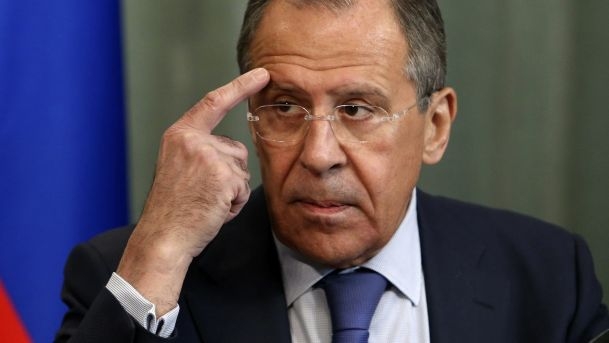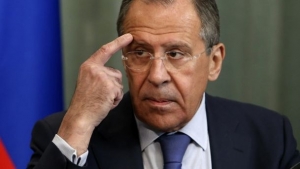Lavrov Says Georgia Must Make First Move to Re-establish Relations with Russia
TBILISI - Russia’s Foreign Minister Sergey Lavrov on Friday said Georgia should be the first to make a move towards re-establish diplomatic ties between the two countries as Georgia was first responsible for cutting formal relations between Moscow and Tbilisi.
During a speech at an annual youth forum on the Klyazma River in Russia’s central Vladimir Region, 200 kilometers from Moscow, Lavrov said bilateral relations between Russia and Georgia had improved considerably since the ruling Georgian Dream coalition came to power in 2012 after defeating former President Mikheil Saakashvili’s stridently pro-Western government from power.
"The Georgian leadership (unilaterally) severed diplomatic ties with Russia under Saakashvili’s presidency. This situation can only be improved by a restoration diplomatic relations initiated by the Georgian side,” Lavrov said. "I am confident that we will resolve all problems. Even now, there is a lot more common sense in their approach to our relations," he said.
Georgian officials have long said that formal relations would remain frozen as long as Russia continues to recognize the separatist governments of Georgia’s two breakaway regions Abkhazia and South Ossetia.
Relations between the two countries get plummeted to an all-time low in August 2008 when Russian tanks rolled into the heart of Georgia after Saakashvili ordered a disastrous attack on the South Ossetian separatist capital Tskhinvali. The ensuing five-day killed hundreds and left thousands driven from their homes as Russia’s invasion force came within an hour’s drive of Tbilisi.
Immediately following the collapse of the Soviet Union, Russian-backed rebels in Abkhazia broke away from Georgia. Moscow occupied and effectively annexed the area, as well as Georgia’s other breakaway South Ossetia region.
Moscow recognized South Ossetia and the other occupied Abkhazia region as independent states following the 2008 war.
International law and the United Nations continue to state that the regions remain part of Georgia.
By Tamar Svanidze
Edited by Nicholas Waller












